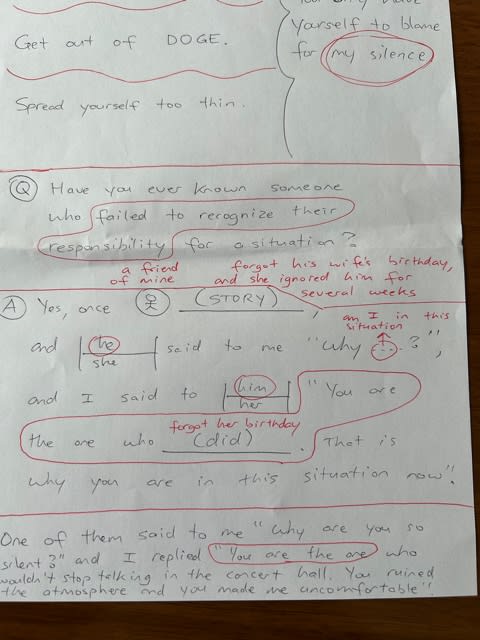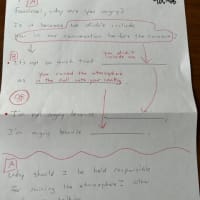9a-46
You can't pin all of the blame on me.
Assigning and deflecting blame for cheating
To assign blame means to assign responsibility for a fault or mistake. To deflect blame means to shift the responsibility onto someone or something else.
Why should I be held responsible when everyone does it?
Who do you think is the most to blame for students cheating?
ーーーーーーーーーーーーーーーー
Up to 90% of students cheat at school, and they're not the only ones cheating. Common reasons for cheating cited by students are the need to edge out the competition and the belief that everyone else is cheating. Parents may succumb to pressure to ensure that their children get into the right schools and to compete with other parents. Cheating among teachers has risen as they are held increasingly accountable for standardized test results.
ーーーーーーーーーーーーーーーー
Language
Practice the language. Then, imagine a response to the sentences.
Assigning or deflecting blame
You're the one who copied the test.
You only have yourself to blame for what happened.
It's not so much that you cheated; it's more that you lied about it.
I knew I shouldn't have been doing it, but everyone else was doing it.
Why should I be held responsible when you're the ones putting pressure on me?
You can't pin all of the blame on me when the system encourages cheating.
ーーーーーーーーーーーーーーーー
Listening (p169)
Listen to a conversation between a child and a parent. Then, continue the conversation.
ーーーーーーーーーーーーーーーー
レッスンポイント
Assigning and deflecting blame for cheating
Look again at the Production activity. Imagine that the student has been caught cheating, and his parents are attending a conference with his teacher. Write their conversation. One parent accepts the child's culpability; the other parent tries to deflect it.
























※コメント投稿者のブログIDはブログ作成者のみに通知されます